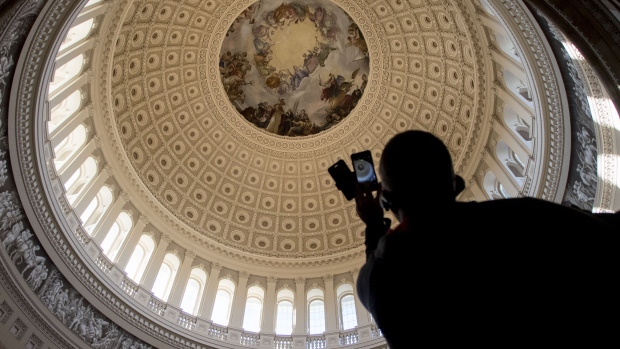Nov 19, 2019
House votes to push shutdown risk to December
, Bloomberg News

The U.S. House voted to keep the government funded until Dec. 20 and avoid a shutdown when current spending authority runs out after midnight Thursday.
The stopgap spending bill, approved on a 231-192 vote, is set to be taken up by the Senate this week, and President Donald Trump will sign it by the deadline, Majority Leader Mitch McConnell said on the Senate floor Tuesday.
The temporary measure, known as a continuing resolution, is necessary because lawmakers still haven’t agreed on the 12 annual spending bills needed to fund federal agencies for the rest of the fiscal year that began Oct. 1.
“With just days until current stopgap funding expires, we must pass a continuing resolution to keep government open and fund key priorities,” House Appropriations Chairwoman Nita Lowey said, adding that her committee is still working to finish the spending bills.
The House already passed its version of 10 of the bills, and the Senate passed its version of four. None of those can be reconciled until Republicans and Democrats agree to top-line spending levels for each of the 12 bills within the overall US$1.3 trillion budget cap enacted by bipartisan legislation in July.
Once again, the key sticking point is Trump’s request for US$9 billion for a border wall, which Democrats are refusing to fund. Putting taxpayer money toward the wall would mean other domestic priorities would receive less funding. A proposal to lift the overall budget cap to accommodate the wall hasn’t gained traction so far.
Stopgap Measure
The short-term spending bill the House passed Tuesday also extends a number of expiring programs, including controversial law-enforcement wiretapping authority, known as the Foreign Intelligence Surveillance Act, opposed by progressives and libertarians.
The elements of FISA that are set to expire on Dec. 15 would be extended through March 15, 2020 in the House bill. The provisions allow expanded authority to wiretap terrorism suspects, collect call record details, to track “lone wolf” suspects not connected to a terrorist organization, and to examine business records related to terrorism investigations.
Representative Alexandria Ocasio-Cortez, a progressive Democrat from New York, said she would vote against the stopgap bill because it extends FISA authorities. But Senator Rand Paul, a libertarian-leaning Republican from Kentucky, said he would not trigger a shutdown by slowing down Senate debate on the bill past the deadline this week. He triggered a 6-hour shutdown in 2018 by delaying the vote because he objected to spending levels.
The bill passed by the House would also keep the Export-Import Bank open until Dec. 20 as lawmakers attempt to negotiate a long-term re-authorization of the export finance agency. It would also give members of the military a 3.1 per cent pay increase, allow the Census to spend more money and avert a funding cliff for transportation spending next year. Community health centers and other health programs would also receive funding through Dec. 20.








